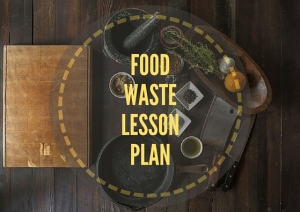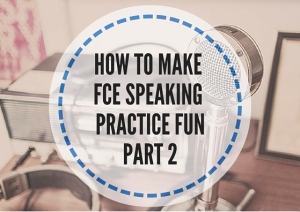 How to make FCE speaking practice fun presents an alternative way to go about preparing your students for their FCE speaking exam. The objective here is to introduce different activities that make FCE speaking practice fun and at the same time help students perfect skills and strategies which the exam requires. This is the second in the series of four posts, focusing on Speaking Part 2
How to make FCE speaking practice fun presents an alternative way to go about preparing your students for their FCE speaking exam. The objective here is to introduce different activities that make FCE speaking practice fun and at the same time help students perfect skills and strategies which the exam requires. This is the second in the series of four posts, focusing on Speaking Part 2
Food waste lesson plan
How to make FCE speaking practice fun: Part 1
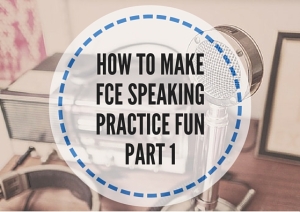 How to make FCE speaking practice fun presents an alternative way to go about preparing your students for their FCE speaking exam. It is the first in the series of four posts, each focusing on a different part of the speaking exam. The objective here is to introduce different activities that make FCE speaking practice fun and at the same time help students perfect skills and strategies which the exam requires. Continue reading
How to make FCE speaking practice fun presents an alternative way to go about preparing your students for their FCE speaking exam. It is the first in the series of four posts, each focusing on a different part of the speaking exam. The objective here is to introduce different activities that make FCE speaking practice fun and at the same time help students perfect skills and strategies which the exam requires. Continue reading
Phrasal verbs about education: speaking activity
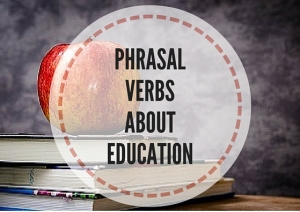 The aim of the phrasal verbs about education speaking activity is to introduce four phrasal verbs related to the topic of education and practice using them in context. I have already discussed 8 different types of activities you might use to help your students learn phrasal verbs. Similarly to previous phrasal verbs sets (money and relationships), this one introduces a phrasal verb with its definition, an example sentence, and an icon to symbolise its meaning and make learning easier for the student.
The aim of the phrasal verbs about education speaking activity is to introduce four phrasal verbs related to the topic of education and practice using them in context. I have already discussed 8 different types of activities you might use to help your students learn phrasal verbs. Similarly to previous phrasal verbs sets (money and relationships), this one introduces a phrasal verb with its definition, an example sentence, and an icon to symbolise its meaning and make learning easier for the student.
10 Steps to Happiness: speaking activity
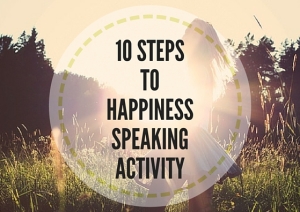 10 steps to happiness speaking activity offers students the opportunity to discuss what makes people happy and what we should do less or more of in order to become happier. This brief activity is a great warm-up for conversation classes with teenage or adult students, as well as a great addition to any class on the topic of happiness or lifestyle. It is suitable for levels pre-intermediate and above. I got the idea for this activity and its content after seeing a great sketchnote by Sylvia Duckworth.
10 steps to happiness speaking activity offers students the opportunity to discuss what makes people happy and what we should do less or more of in order to become happier. This brief activity is a great warm-up for conversation classes with teenage or adult students, as well as a great addition to any class on the topic of happiness or lifestyle. It is suitable for levels pre-intermediate and above. I got the idea for this activity and its content after seeing a great sketchnote by Sylvia Duckworth.
Room 101 lesson plan
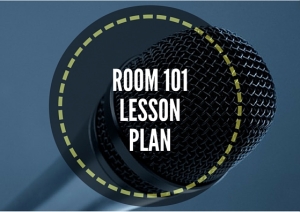 Room 101 lesson plan is a perfect fit for more advanced and older students who need more speaking practice. Room 101 lesson plan combines listening, vocabulary practice and speaking on the topic of the things that wind us up. Room 101 is a concept first introduced by George Orwell in his novel 1984, as a place containing people’s worst nightmares. To give the idea a more positive ring, this lesson plan introduces Room 101 as a place where the things we find annoying are put away and eliminated from our lives. Room 101 lesson plan works great with small and bigger groups of ESL learners, levels upper-intermediate and advanced.
Room 101 lesson plan is a perfect fit for more advanced and older students who need more speaking practice. Room 101 lesson plan combines listening, vocabulary practice and speaking on the topic of the things that wind us up. Room 101 is a concept first introduced by George Orwell in his novel 1984, as a place containing people’s worst nightmares. To give the idea a more positive ring, this lesson plan introduces Room 101 as a place where the things we find annoying are put away and eliminated from our lives. Room 101 lesson plan works great with small and bigger groups of ESL learners, levels upper-intermediate and advanced.
Vocabulary mingle game
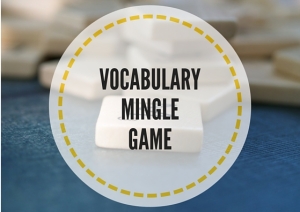 Vocabulary mingle game is a fun and engaging activity which requires from students to find answers to 20 different questions relating to various vocabulary items. It might be used as a warm-up game and is a good idea for one of the first classes when you would like to gauge your students’ vocabulary knowledge. It might as well be used in the form of a quiz after covering several units from the coursebook. It is easily adaptable for any level and works best with bigger groups of students. It might be used with both younger and older students. the game below works best with pre-intermediate / intermediate students. Vocabulary mingle game ensures a lot of student talking time and is a nice icebreaker idea, as it helps students learn each other’s names faster.
Vocabulary mingle game is a fun and engaging activity which requires from students to find answers to 20 different questions relating to various vocabulary items. It might be used as a warm-up game and is a good idea for one of the first classes when you would like to gauge your students’ vocabulary knowledge. It might as well be used in the form of a quiz after covering several units from the coursebook. It is easily adaptable for any level and works best with bigger groups of students. It might be used with both younger and older students. the game below works best with pre-intermediate / intermediate students. Vocabulary mingle game ensures a lot of student talking time and is a nice icebreaker idea, as it helps students learn each other’s names faster.
Minimal pairs pronunciation game
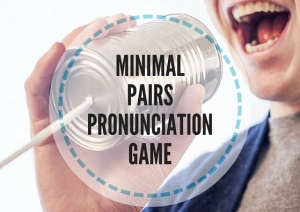 Minimal pairs pronunciation game helps students practice minimal pairs of vowels in a playful way. Minimal pairs are pairs of words that differ in one phoneme and have distinct meanings. This game helps practice minimal pairs that differ in the vowel sound: /ɪ / vs. /i:/, colloquially known as “short” and “long” “i”. The fact that vowels in English have duration which may affect the meaning of words comes to many students as a surprise, mostly for those who can’t observe a similar tendency in their mother languages (such as Polish or Spanish). Practicing the pronunciation of long and short vowels is basically what helps your students avoid confusing such lovely minimal pairs as shit and sheet or bitch and beach. Before moving to the more colourful language, you may practice minimal pairs using plenty of other examples, which makes this game suitable for both teenage and adult students, levels elementary and above.
Minimal pairs pronunciation game helps students practice minimal pairs of vowels in a playful way. Minimal pairs are pairs of words that differ in one phoneme and have distinct meanings. This game helps practice minimal pairs that differ in the vowel sound: /ɪ / vs. /i:/, colloquially known as “short” and “long” “i”. The fact that vowels in English have duration which may affect the meaning of words comes to many students as a surprise, mostly for those who can’t observe a similar tendency in their mother languages (such as Polish or Spanish). Practicing the pronunciation of long and short vowels is basically what helps your students avoid confusing such lovely minimal pairs as shit and sheet or bitch and beach. Before moving to the more colourful language, you may practice minimal pairs using plenty of other examples, which makes this game suitable for both teenage and adult students, levels elementary and above.
4 tips for the first day of class
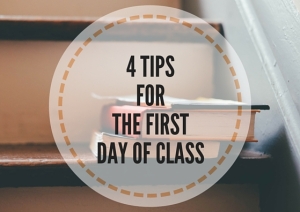 Here are 4 tips for the first day of class that will make it a positive experience for everyone involved. I know, preparing for the first day of class often makes us nervous. Our students come to class with certain expectations and, most importantly, with a desire to learn and hoping the teacher will be there to help them throughout the year. We would like to deliver a great first lesson, make a good impression on the students, and start the new course with a bang. The only question is: what to focus on? Crack the book open? Play the Name Game for 60 minutes? Give students a questionnaire asking them what they would like to work on in class? There are no golden rules to be followed when planning your first day, but there are some tips to help you.
Here are 4 tips for the first day of class that will make it a positive experience for everyone involved. I know, preparing for the first day of class often makes us nervous. Our students come to class with certain expectations and, most importantly, with a desire to learn and hoping the teacher will be there to help them throughout the year. We would like to deliver a great first lesson, make a good impression on the students, and start the new course with a bang. The only question is: what to focus on? Crack the book open? Play the Name Game for 60 minutes? Give students a questionnaire asking them what they would like to work on in class? There are no golden rules to be followed when planning your first day, but there are some tips to help you.
5 Icebreakers for the first day of class
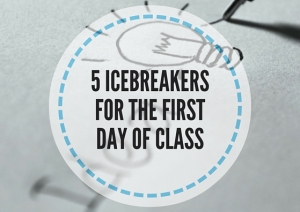 5 Icebreakers for the first day of class is a mini collection of activities to be done on the first day of class. Icebreakers are a great way for the teacher to get to know the students and for the students to get to know each other. It is important to keep things light on the first day and focus on communication. On top of that, icebreakers allow the teacher to initially assess their students’ strengths and weaknesses and do a little bit of language analysis, something which is very important to tailor the course to students’ needs. Below, you can find 5 icebreakers to be done on the first day of class with adult or teenage classes, levels pre-intermediate and above.
5 Icebreakers for the first day of class is a mini collection of activities to be done on the first day of class. Icebreakers are a great way for the teacher to get to know the students and for the students to get to know each other. It is important to keep things light on the first day and focus on communication. On top of that, icebreakers allow the teacher to initially assess their students’ strengths and weaknesses and do a little bit of language analysis, something which is very important to tailor the course to students’ needs. Below, you can find 5 icebreakers to be done on the first day of class with adult or teenage classes, levels pre-intermediate and above.
